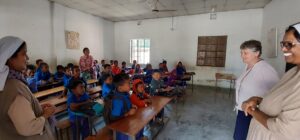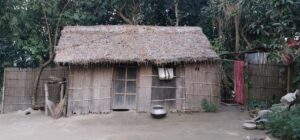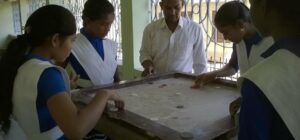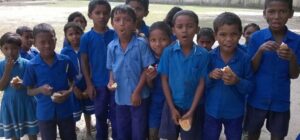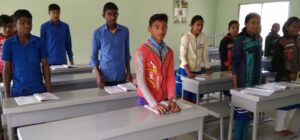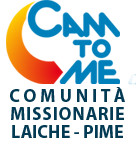Khalisha is a village situated in North-west of India, inhabited mainly by the ethnic tribe Oraon. They are found in the district of Rangpur. The population lives by agriculture and the major part of families are able to earn just what is necessary for their subsistence (survival). The level of literacy of the population is slowly becoming better.
According to official estimates, thanks to the combined effort of government and various non-governmental agencies, the percentage in the village is approximately 60%, but in the district of Rangpur it reaches just 40%, with a remarkable disparity between male and female. And also because of this situation, lack of sensibility of the parents the necessity to give adequate education to their children.
These problems are prominent (noticeable) among the tribals who suffer even the discrimination to which they are subjected as ethnic and religious minority.
Our presence in this village had started in the year 1987. At present we are engaged in the field of pastoral work, with one sister who follows the activity of the parish and visits the surrounding villages, in that of health with one sister who takes care of dispensary, in the field of education through the management of the school by one sister who welcomes the children coming even from the neighboring villages. Two sisters are engaged there, one as president and the other one as teacher.
At present, there are 365 children who attend our school, from kindergarten to class 8.
Description
Identified issues
The lack of education undoubtedly represents a major obstacle to socio-economic development, but also to the growth of an awareness that allows these populations to commit themselves to having their rights respected. We are also convinced that spiritual growth and therefore the process of inculturation of the Gospel can also benefit from the cultural growth of the person.
Khalisha village is located in a rural area that is difficult to reach. It is not easy in the village to find teachers especially for the first cycle of high school (from the 6th to the 8th class), as often happens those who have completed higher education prefer to move to the city to have more job and career opportunities. Teachers must therefore be offered an adequate salary to ensure that they remain in the village or that they agree to move there.
Given the very precarious economic situation of families, we cannot count on the income deriving from school fees.
Beneficiaries of the Project
In the first instance, the beneficiaries of the Project are first and foremost the tribal children, Christian and non, who live in Khalisha and in the nearby villages. The children of poor Muslim or Hindu families living in the area will not be excluded from the Project.
In addition, the teachers themselves who will be guaranteed a fair salary to allow them, while remaining in the village, to be able to support their families.
The indirect beneficiaries of the Project are the inhabitants of the entire area, foreseeing that the long-term results of an improvement in general education will favor progress in the socio-economic situation of the area.
Action strategy
On the basis of the problems described, the project aims to operate in such a way as to sensitize the population on the need to provide adequate cultural training to the younger generations, improving and developing the quality of the service provided.
General Goal
To improve the living conditions and the socio-economic situation of the population by guaranteeing the possibility of adequate human and spiritual growth through the education of the younger generations.
Specific goals
- To ensure a good level of primary and secondary education for the students of the school.
- Ensure fair salaries for teachers.
- Create awareness of the need to give children an adequate cultural education.
Expected results
- Through direct contact with parents, create awareness of the need for education for their children, guaranteeing elementary education to 90% of the children in the village and to as many children as possible from the surrounding villages.
- Improving the quality of education delivered through teacher training.
Activities
-
- Courses for teachers.
- Direct contact with the parents of the children of Khalisha and nearby villages.
- Routine teaching activities.
Human resources
Currently, the school has 13 teachers, including two MdI sisters, one of whom is also the director.
Financial estimate
We request a contribution of Tk. 1.235.000 equal to Euro 13,000 (E 1 = Tk. 95) which is added to the contribution derived from the families of the girls, from the fund adoption and other small funds are able to cover the budget expense for the year 2023.

